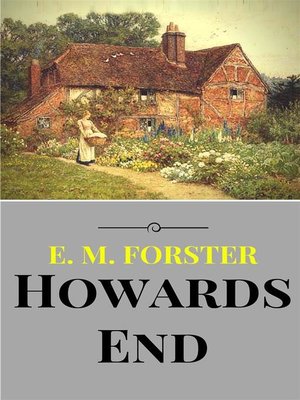



Starzįor all the sadomasochism dripping through the dialogue, this miniseries, like Forster’s novel, is utterly devoid of sex.

See how they’re awkwardly crammed into the corner so you feel tense looking at them? The whole show is like that. “Oh, baby, yes, tell me more about how I need to escape my liberal bubble.” If I just made Howards End sound sexy, I apologize. You can just imagine the erotic glee with which the Schlegel sisters would face the New York Times op-ed section every week if they lived in 2018. “Sometimes I long for someone dominating to tell me that my ideals are sheltered and academic, that equality is bosh.” “Sometimes I feel that we are swathed in cant, and it’s good for us to be stripped of it,” says older sister Margaret (Atwell, perfectly cast, with intelligence infusing her every move). Wilcox, “he gave me such a sitting-down as I have never had! And like all really strong people, he did it without hurting me.” “When I said I believed in the equality of the sexes,” breathlessly recounts younger sister Helen ( Philippa Coulthard, all giant eyes and windswept hair) of her first meeting with Mr. And for the Schlegels, there is a masochistic thrill in having the Wilcoxes baldly dismiss their most deeply held ideals - about the equality of women and the classes - as “bosh.” For the staid Wilcoxes, watching the young and pretty Schlegel sisters fend for themselves as they go through life is exciting and appalling at once. When Schlegels and Wilcoxes meet, each family finds the other alienating and titillating in equal measure. (See also North and South.) In this case, the central families are the Schlegels - half-German and half-English, bohemian, and carelessly cosmopolitan - and the Wilcoxes: thoroughly English, bourgeois, and casually imperialist. Howards End is one of those novels where different classes are represented by different families, and the marriage that unites the families also symbolically unites the classes. The conflict of Howards End would feel right at home in a think piece about coastal elites Such an elitist. Howards End is, Daniel Born once wrote, “ the most comprehensive picture of liberal guilt in this century.” And in our current era of weekly think pieces on the voters of “Trump country,” their mysterious ways, and how liberal cosmopolitanism has failed them, Howards End will have you wincing in recognition. Vox-mark vox-mark vox-mark vox-mark vox-mark


 0 kommentar(er)
0 kommentar(er)
